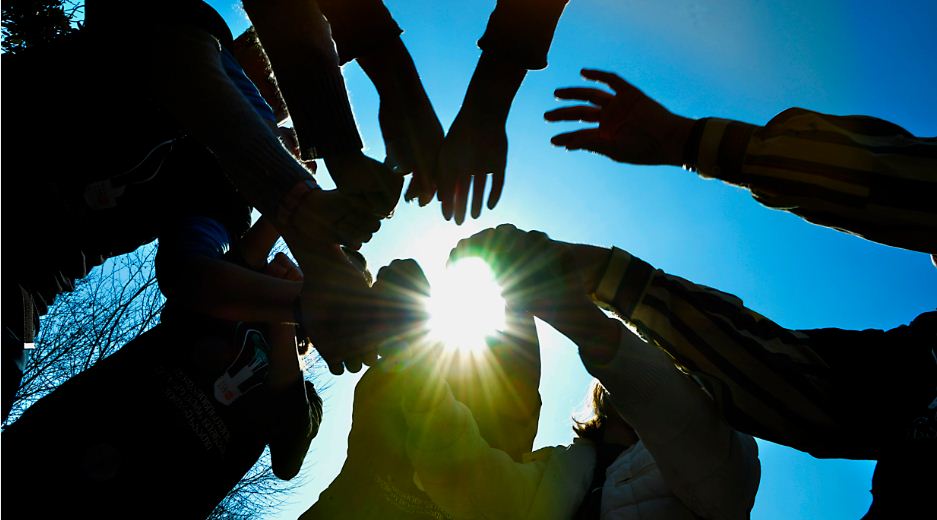World Ozone Day: A Testament to Global Unity and Progress
September 15, 2023
September 16th, known as World Ozone Day, represents more than just a date. It symbolizes our global endeavor to protect the vital ozone layer. This year, the spotlight is on “Montreal Protocol: Restoration of the Ozone Layer and Mitigating Climate Change”, emphasizing the successes of the Montreal Protocol on Substances that Deplete the Ozone Layer in addressing both the ozone and climate crises.
The Montreal Protocol: A Reflection of Global Solidarity
Since its initiation in 1987, the universally ratified Montreal Protocol has served as a beacon of environmental collaboration. This pivotal treaty systematically governs the production and consumption of nearly 100 ozone-depleting substances, safeguarding Earth’s stratospheric ozone layer - our natural barrier against the sun’s damaging ultraviolet rays. Adhering to specific phase-out schedules tailored for developed and developing countries, the Protocol is a paragon of international cooperation.
A testament to the success of such collaborative environmental strategies, the latest research from the Scientific Assessment Panel to the Montreal Protocol highlights a rejuvenating ozone layer. Experts project its restoration to 1980 levels around 2066 over the Antarctic, underscoring the Protocol's immense positive impact on human health, biodiversity, and the climate.
Since 1991 the Multilateral Fund for the Implementation of the Montreal Protocol has supported 144 developing nations to protect the Earth’s ozone layer by phasing out 756,013 metric tonnes of ozone-depleting substances and eliminating an equivalent of 2.2 billion tonnes of greenhouse gases. UNDP is proud to have contributed to this successful story alongside other implementing agencies and to the achievement of Sustainable Development Goals (SDGs). The scorecard reflecting the results of the Multilateral Fund programme demonstrates the portfolio approach adopted by the Multilateral Fund at global and country level to support all developing countries to meet the compliance targets.
Further building on this, the Kigali Amendment, adopted in 2016 with 152 parties ratified so far, targets the strategic reduction of hydrofluorocarbons (HFCs), significant greenhouse gases. This Amendment envisions a reduction of HFCs by 80-85% by the 2040s, illustrating a comprehensive commitment to combating climate change.
Resonating Unity Amidst Climatic Challenges
UN Secretary-General, António Guterres, in his message for the International Day for the Preservation of the Ozone Layer, underscores the impact of global accords in making a discernible difference to our world. He accentuates the strength of "multilateralism" and its transformative capacity for a sustainable tomorrow. Advocating that a cap on the global temperature rise to 1.5°C is vital, Guterres introduces a "Climate Solidarity Pact and an Acceleration Agenda" while endorsing the Kigali Amendment. He spotlights the potential of the Kigali Amendment to reduce global warming by "up to 0.5°C by 2100" and appeals to all nations to ratify and implement it.
UNDP's Journey from 2022 to 2023: Elevating Environmental Milestones and Partnerships
Reflecting on 2022, UNDP’s resolute initiatives supported 41 nations on their hydrofluorocarbons (HCFCs) phase-out journey and 28 nations in plotting their HFC phase down plans. We are very proud of the accomplishments of pilot projects for the Kigali Amendment in Bangladesh, China, Dominican Republic, and Mexico, which led to the transformative change of local and regional markets to highly efficient refrigeration equipment using environmentally friendly technology. These achievements demonstrated the importance of financial and technical support to local manufacturing sectors in developing countries through international cooperation.
Our pioneering endeavors and harmonized collaborations shone through initiatives like the Cool Up Programme. These efforts, rooted in 2022, responded to global needs for sustainable cooling and laid the groundwork for expansive impacts. Beneficiary countries, including Türkiye, Lebanon, Egypt, and Jordan, amplified their progression, revealing even more promising results as 2023 unfolds.
The project “Supporting the Implementation of the Kigali Amendment” culminated successfully under our collaboration with Canada. This initiative empowered Bangladesh, Belize, Chile, Colombia, Cuba, El Salvador, Jamaica, and Peru to kickstart their actions to phase down HFCs. Notably, manufacturers in the Dominican Republic and Mexico transitioned to natural refrigerants.
UNDP played a foundational role in the establishment of the Climate and Ozone Protection Alliance (COPA), proudly becoming one of its inaugural members in 2022. Our hands-on participation, from vital discussions to shaping COPA's core objectives, set an innovative trajectory. As 2023 unfolds, our commitment deepens, exploring finance from the carbon markets and deploying digital solutions to improve energy efficiency while reducing refrigerant emissions.
Furthermore, our commitment to bolstering Small Island Developing States (SIDS) has seen significant progress. With support from the government of New Zealand a suite of initiatives including district cooling system design was rolled out in Fiji, Maldives, Timor, Dominican Republic, and Jamaica.
Harnessing the Spirit of Global Collaboration
In his message, UN Secretary-General António Guterres encourages every country to ratify the Kigali Amendment and build a world where all can thrive, inspired by the values of the Vienna Convention and the Montreal Protocol. Through unwavering international cooperation, leveraging scientific findings and collective innovations, a harmonious future, where our planet and its denizens flourish beckons.


 Locations
Locations